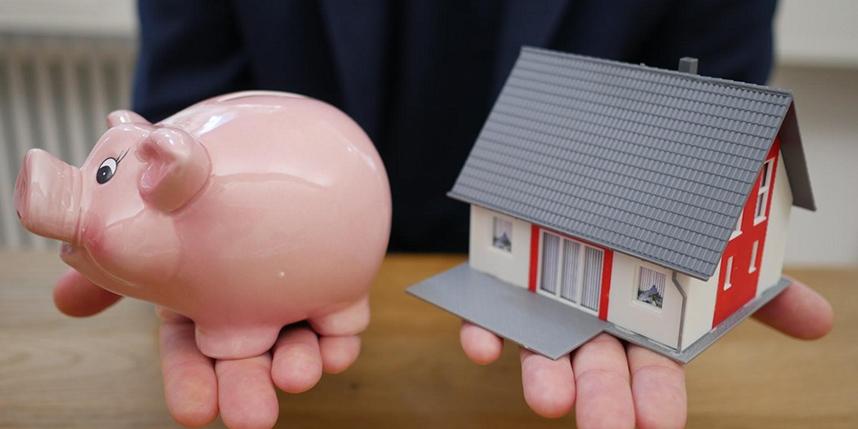The Pros and Cons of Flipping Houses-Is it the Right Investment Strategy for You?
24 Jul 2023
Flipping houses — it sounds like a game, doesn't it? But this 'game' is a serious business strategy that can lead to significant financial rewards if played right.
Buying lower-priced properties has surged in popularity over the past few years. However, like other businesses, weighing the risks and rewards is crucial.
In this article, we will talk about the pros and cons of house flipping. We'll help you decide if it's a promising investment or if you should look for another alternative to invest in the real estate market.
Understanding House Flipping
House flipping is not a concept that has sprung up overnight. It has been a part of the real estate industry for many years. You might have even seen it in various reality TV shows.
The fundamental process of house flipping involves three main steps. It starts with buying a property, often at a below-market price. Next, it involves refurbishing or renovating the house to add value. Finally, you'll sell (or 'flipping') it for a profit.
It sounds simple enough, but the execution involves considerable research, effort, and investment.
The Pros of Flipping Houses
If you want to make money in real estate, house flipping can be a good choice. It offers several benefits, including those we will talk about below.
1. Potential for High Profits
One of the biggest draws of house flipping is the potential for high profits. You could make a substantial profit if you have a knack for identifying underpriced properties in promising areas and can successfully renovate them without overshooting your budget. It's an avenue of investing in real estate that allows you to make larger lump-sum profits rather than smaller monthly rental incomes.
2. Quick Returns
Unlike traditional property investments, where returns are accrued over a long period through rent or appreciation, house flipping can yield faster returns. Once the house is renovated and sold, you receive your profits, allowing you to move on to the next project.
3. Creative Outlet & Skills Development
House flipping also presents an opportunity for creativity. You can make design choices and see a property transform under your guidance. Many investors choose to carry out house extensions to increase the value of the property before putting it up for sale. It can also serve as an excellent avenue to refine your real estate, negotiation, and project management skills.
4. Control Over Investments
In contrast to stock market investments, where many external factors are out of your control, house flipping allows you to influence the value of your investment directly. From choosing the property to deciding on the renovations, you control the variables determining your investment return.
5. Property Ownership
House flipping can also be a path to owning property, which can be an asset even if the market dips. If a flip doesn't sell immediately, you can rent it out or use it for Airbnb. Doing so will provide another potential income stream while you wait for a suitable buyer.
The Cons of Flipping Houses
While house flipping presents a great opportunity to take advantage of the thriving property market, it also has drawbacks. Being familiar with such is crucial to making the right decision, especially considering it might require considerable money.
1. Financial Risk
The inherent financial risk is significant. Unforeseen repairs, market fluctuations, and unexpected events can drastically impact the profitability of a flip. Moreover, a flip requires a sizeable upfront investment, and delays or problems can escalate costs.
2. Time and Effort
Flipping houses is time-intensive. It requires hands-on management, especially during the renovation phase. Dealing with contractors, overseeing renovations, and managing sales require a considerable time investment.
3. Unexpected Problems
No project goes entirely as planned. House flipping may include unanticipated issues such as regulatory hurdles, trouble finding reliable contractors, or sudden economic changes.
Is House Flipping the Right Investment Strategy for You?
Deciding whether house flipping is the right strategy for you involves a comprehensive self-evaluation across several areas, ranging from your personal characteristics and financial readiness to understanding the real estate market.
Personality and Skill Considerations
House flipping isn't just about having the financial resources but also the right personal traits and skills.
The nature of house flipping requires you to be adaptable and capable of adjusting to changing circumstances, such as unexpected renovation challenges or market fluctuations.
It's also crucial to possess strong negotiation skills, as you'll need to negotiate property prices, contractor fees, and potentially the final sale price.
Beyond this, the ability to manage stress effectively is key. House flipping can be a roller-coaster of highs and lows, so maintaining composure in the face of challenges is essential.
Furthermore, the capacity to make informed decisions quickly is a valuable asset in this business, where delays can equate to escalating costs.
Lastly, a genuine interest in real estate and renovation projects can make the process more enjoyable and less of a chore. If you love seeing a project progress from start to finish and have a keen eye for what improvements can increase a property's value, then house flipping may indeed be a good fit for you.
Financial Assessment
A robust financial evaluation is a critical step before venturing into house flipping. Since it involves a significant upfront investment and potential for unforeseen expenses, it's crucial to have a firm financial footing.
You need to be capable of weathering potential losses and should ideally have a safety net or contingency fund in place.
Remember, house flipping costs extend beyond the property's purchase price and renovation expenses. You'll also need to account for holding costs such as mortgage payments, property taxes, insurance, and utilities, which you'll need to pay for as long as you own the property.
Market Understanding
Having deep knowledge of your local real estate market and the ability to understand and forecast trends is crucial.
The best house flippers are those who can identify up-and-coming neighbourhoods before they become popular, allowing them to buy properties at lower prices and sell them for a significant profit once the area's popularity increases.
The success of a flip can depend heavily on market conditions at the time of sale. If the market slows or property prices drop in your area, you may struggle to sell your property quickly and for the price you want. Therefore, assessing market conditions accurately and making decisions accordingly is essential for house flipping.
Being well-versed in the rules and regulations related to property transactions, understanding the legal aspects of buying and selling properties, and having a strong network of professionals such as real estate agents, contractors, and legal experts can also significantly contribute to your success in house flipping.
Conclusion
House flipping can indeed be a lucrative investment strategy, but it is not for everyone. It requires a keen eye for profitable properties, a solid understanding of the real estate market, substantial financial investment, and a risk appetite.

Therefore, weighing the pros and cons and considering your financial standing, skills, and risk tolerance before embarking on the house-flipping journey is important.
Happy investing!
Categorised in: All News












